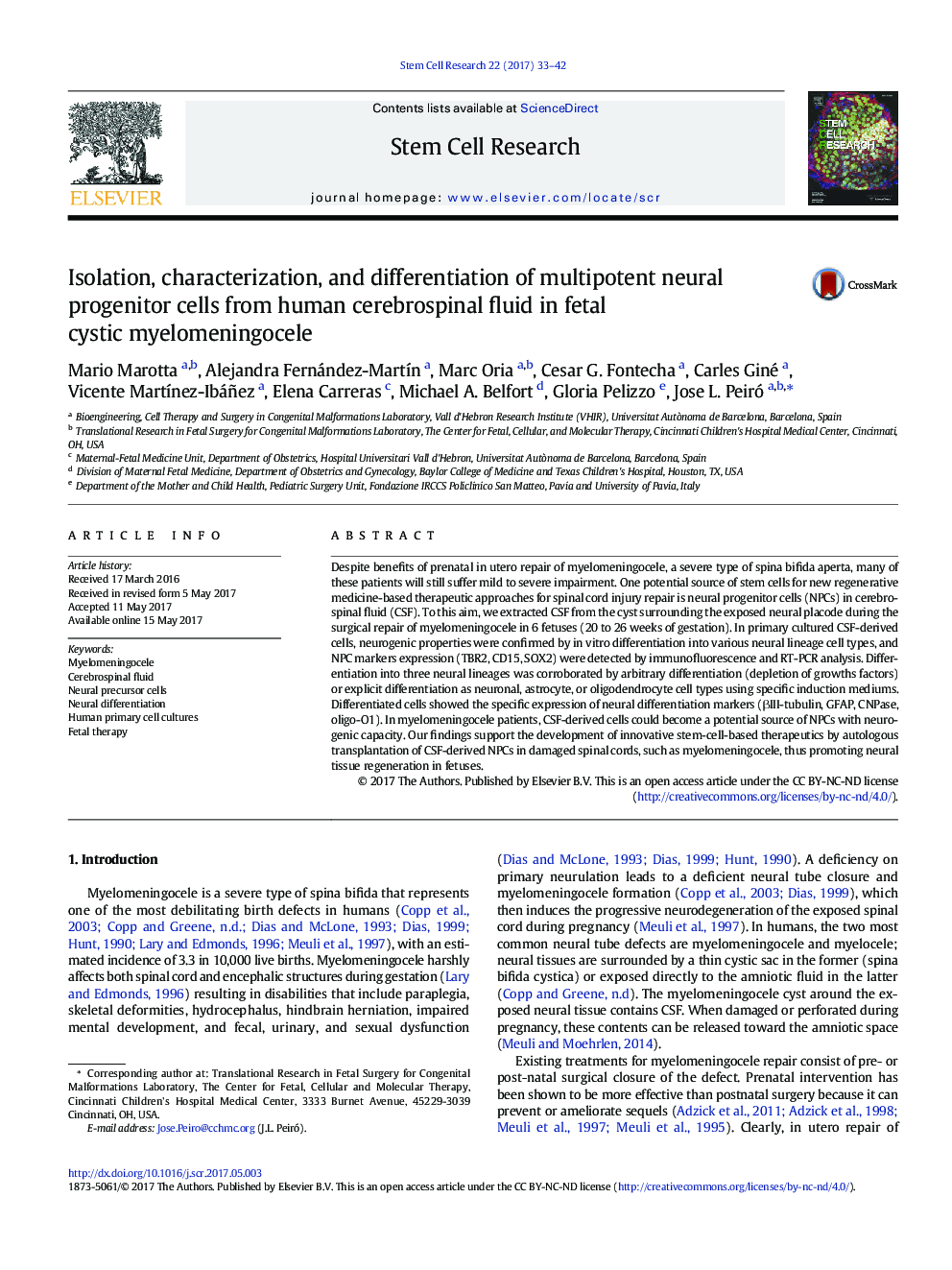| Article ID | Journal | Published Year | Pages | File Type |
|---|---|---|---|---|
| 5522808 | Stem Cell Research | 2017 | 10 Pages |
â¢Neural progenitors populate Cerebrospinal Fluid of human Myelomeningocele fetusesâ¢Cerebrospinal Fluid-derived cells successfully expand in primary cultureâ¢Human Myelomeningocele Cerebrospinal Fluid-derived cells show neurogenic propertiesâ¢Human fetal neural progenitor cells differentiate into neuronal and glial cellsâ¢New potential cell therapy-based strategies for human Myelomeningocele treatment
Despite benefits of prenatal in utero repair of myelomeningocele, a severe type of spina bifida aperta, many of these patients will still suffer mild to severe impairment. One potential source of stem cells for new regenerative medicine-based therapeutic approaches for spinal cord injury repair is neural progenitor cells (NPCs) in cerebrospinal fluid (CSF). To this aim, we extracted CSF from the cyst surrounding the exposed neural placode during the surgical repair of myelomeningocele in 6 fetuses (20 to 26 weeks of gestation). In primary cultured CSF-derived cells, neurogenic properties were confirmed by in vitro differentiation into various neural lineage cell types, and NPC markers expression (TBR2, CD15, SOX2) were detected by immunofluorescence and RT-PCR analysis. Differentiation into three neural lineages was corroborated by arbitrary differentiation (depletion of growths factors) or explicit differentiation as neuronal, astrocyte, or oligodendrocyte cell types using specific induction mediums. Differentiated cells showed the specific expression of neural differentiation markers (βIII-tubulin, GFAP, CNPase, oligo-O1). In myelomeningocele patients, CSF-derived cells could become a potential source of NPCs with neurogenic capacity. Our findings support the development of innovative stem-cell-based therapeutics by autologous transplantation of CSF-derived NPCs in damaged spinal cords, such as myelomeningocele, thus promoting neural tissue regeneration in fetuses.
